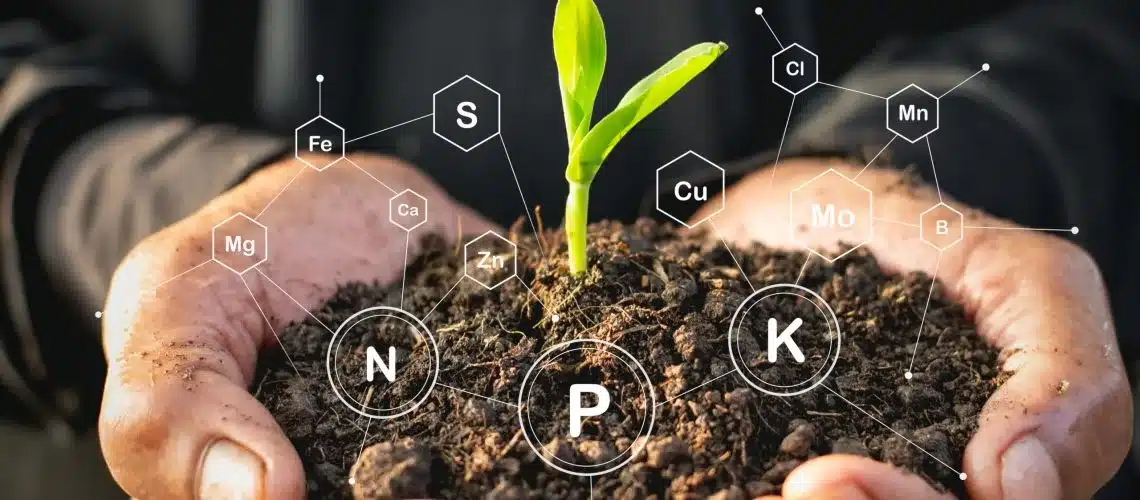Carbon is an essential building block of life on Earth. It is found virtually everywhere, from the air to the oceans, animals, plants, rocks and soil, which holds the largest portion of active carbon on Earth. Carbon is critical to soil productivity and function, and is thus a major component of overall soil condition and health.
In an age of biodiversity loss, climate change and land degradation – and amid the pressures of an increasing global population – soils have become one of the most valuable and vulnerable resources in the world. So, how do farmers ensure that they are retaining this key element of a healthy soil?
| Did you know? Soils contain more carbon than the atmosphere and terrestrial vegetation combined. |
The importance of soil organic carbon
Soil organic carbon (SOC) is the main component of a soil’s organic matter (SOM). A high SOM:
- Provides nutrients to plants
- Improves water availability
- Enhances soil fertility
- Improves food productivity
- Improves soil structural stability
- Promotes aggregate formation
- Ensures sufficient aeration and water infiltration
- Supports plant growth.
As highlighted above, an increase in SOC typically results in a more stable carbon cycle with the benefit of enhanced overall agricultural productivity.
Agriculture and the carbon cycle
Agricultural practices can have an impact on both the amount and the composition of SOC; as a result, farming also impacts the soil’s physical, biological, and chemical condition – the defining features of soil health.
Some agricultural processes remove large amounts of carbon from the carbon cycle. Physical disturbances of the soil can lead to a loss of carbon into the surrounding environment due to the formation of carbon dioxide when carbon in the soil is exposed. Thus, farmers need to employ soil management tactics to keep carbon in the soil and maintain a high SOM.
Although releasing carbon from soils is completely natural and desirable, it’s the extent to which some farmers have done this that the cycle becomes out of balance. In modern industrial farming, excessive carbon loss is primarily a result of:
- Mismanaged tillage
- Erosion
- Burning
- Overgrazing
- Frequent low-carbon crops.
So, how can farmers manage their fields to enhance levels of organic carbon in the soil and reduce carbon loss into the atmosphere?
Management practices that improve the ability of agricultural fields to sequester carbon include:
- Conservation tillage – Conservation tillage practices include no-till, zone-till, minimum-till, shallow mixing or injection.
- Crop residue management – Returning crop residues helps to maintain SOM and adds carbon to the soil.
- Cover crops – Using cover crops can increase soil carbon by adding root and above-ground biomass. Cover crops also reduce the result of soil erosion and enhance nutrient cycling.
- Manure and compost – Adding organic matter such as manure or compost can increase soil carbon directly and improve soil aggregate stability.
- Crop selection – Planting perennial crops eliminates the need for yearly planting. Their root and litter decomposition post-harvest increase soil organic carbon and bond aggregates together.
- Livestock grazing – Well-managed grazing can stimulate plants to produce greater root mass and helps speed up nutrient and carbon cycling by secondary consumers. Compared to haying or silage operations, grazing also removes very few nutrients. In addition, manure and urine help to support the soil habitat while recycling the nutrients back to the land.
It’s clear that land managers have a choice for how they manipulate the carbon cycle – they can perpetuate carbon loss by exposing soil to mismanaged tillage, erosion, etc.; or they can choose to employ practices that capture carbon in the soil, improve soil health and productivity, and stabilise the global carbon cycle.
Soil carbon management is an important strategy for improving soil quality, increasing crop yields, reducing soil loss and benefitting agricultural production as a whole. Get in touch with the Zylem team to find out more about our soil health solutions. Contact us on 033 347 2893 or send your enquiry to [email protected].

